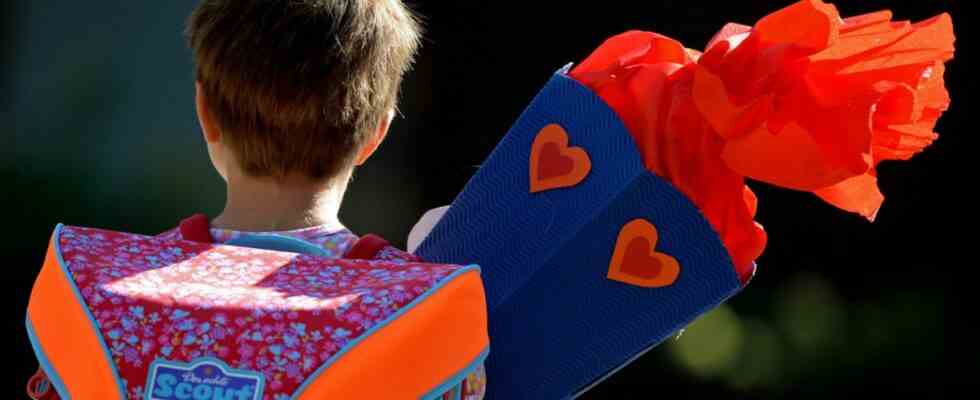My son, 6, has been reading and doing math since he was three. He feels good in kindergarten, but soon he will be in first grade. The mainstream school next door looks nice, but a lot of acquaintances tell bad stories about them – especially when the kids are a bit further along than their peers. Should we enroll him in the expensive and private Montessori school? Beate H., Munich
Margit Auer:
Margaret Auer is the author of the best-selling children’s book series “The School of Magical Animals”, which has now been printed more than seven million times and translated into 25 languages. She has three sons, almost all grown up, and lives in the middle of Bavaria.
(Photo: Auer)
phew! Should you trust the stories? Get a picture for yourself! I go to many schools for readings, and surprisingly you can tell very quickly whether the school is any good or not. There are schools where the children rush past each other, slam the door in their faces, nobody says hello. At others, the caretaker or a teacher will meet the children in the morning, say a few kind words and make sure nobody throws garbage on the floor. The announcements sound nice, not authoritarian. The teachers are friendly, not hectic and stressed. Take your son to school, stroll through the playground, think about which friend will start school with him. By the way: Even at private schools, the sun doesn’t always shine. And what is average anyway? My school visits also show that: elementary schools are motley, full of talents, nationalities, languages. This is exciting! And a challenge for everyone.
Herbert Renz upholstery:
Herbert Renz upholstery is a pediatrician, scientist and author of parenting guides and the blog “Understanding Children”. He has four adult children and lives in Ravensburg with his wife and youngest child.
(Photo: Random House)
A classic that you probably only see more clearly in retrospect. The “school next door” doesn’t exist any more than the “expensive Montessori school”, there’s only class 1c with a teacher of whatever kind, and then there’s an after-school care center that can be great or miserable. Unfortunately, you’re sailing on good luck there, just as you can often enough only pray at the average German school, even if the crucifixes have long been taken down. In addition, there is the world outside of school – children who go to school together tend to form a group of children in the neighborhood that also works magic outside of school – and that would also be an important card for your son’s development. And apparently he already has friends who would then go to the school next door with him. On the other hand, the fact is that he will spend a lot of time at school, and if things don’t go well there, it can hardly be offset. Children need wings and bright eyes, nothing helps. With so much depending on the circumstances, it would be worth trying. If all else fails, he could always switch.
Collien Ulmen Fernandes:
Collien Ulmen Fernandes is an actress and presenter. The mother of a daughter lives in Potsdam and wrote the bestselling children’s book “Lotti und Otto” and the parent guide “I’ll be a mom then”.
(Photo: Anatol Kotte)
When I recently picked up a friend’s son from the 7th grade of a regular school, I noticed: nothing has changed. Boards, benches, protractor. Everything looks the same as it did back then. The bell, the toilet, the teacher’s sayings (“It’s sixth period for all of us!”) – everything exactly like it was 25 years ago when I was still at school. What an old system, I thought. But that’s not true. It’s much older. Our children go to school and learn as they did more than 50 years ago. Just as people thought back then that people should learn: Goethe, math formulas, vocabulary, and dates by heart. What was not known 50 years ago: Hardly anything that children learn in our schools sticks. In other words, our school system is not up to date with brain research and developmental psychology. Or as Confucius put it: “You forget what you are told. You remember what was shown to you. But you can only do what you have done yourself.” To put it very simply, the Montessori approach is based on this idea: children learn by experiencing things themselves. Montessori relies on every child’s natural curiosity. And from my own experience with my daughter, I can tell you: It works. Consistent. Curiosity is a stronger motor than the grade 1 and detention.

